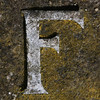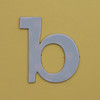As I've mentioned before, I recently got back from a gig in Vegas where I acted as producer and general ringmaster for a "live" podcast series from a business conference.
It's something I've wanted to try for awhile, and we were able to sell the clients on the idea that it'd be as close to live as we could make it without streaming - which I wasn't willing to tackle as a first attempt - and that we'd keep it to a guerrilla effort - fast, cheap, and if not out-of-control, at least not needing much oversight from our clients.
We did get about as live as you would want, posting most of the dozen shows we produced a few hours after recording, more than acceptable everyone agreed, given that we weren't doing breaking news. If necessary we could probably had the stories on the Web an hour after recording - the biggest bottleneck I ran into was the so-called high-speed internet connection offered by the hotel, which was neither high-speed nor provided much of an internet connection.
I eventually ended up posting most of our podcasts around 3 a.m. each morning, the only time I could seemingly get a consistent and relatively fast connection. In the hotel's defense, it did waive the $10 a day charge after I complained, but I still noted that a venue billing itself as a high-end business conference resort - which The Palazzo is in most respects - really needs to upgrade its internet connectivity for customers even if they have to charge more.
Because it was a guerrilla effort, there were only three of us: a reporter/industry analyst who did the bulk of the interviews; our client contact, who helped with all the necessary executive arranging/scheduling/handling; and lil ol' me, who outside of being the producer, also acted as engineer.
Most of the business podcasts I produce are phone interviews or roundtable discussions, most conducted through a traditional landline conference call, sometimes through Skype, recorded, edited, posted by me right here from the kitchen table. Since we were doing in-person, live interviews from the Vegas conference, I needed some sort of mobile recording equipment. All I was sure of was that based on experience I wanted as little gear as possible. The more gear, the more to haul around, the more to lose or break.
After some research, and discussion with fellow podcasters, I hit upon the HHB FlashMic, pictured above, and one of the coolest pieces of technology I've run into in quite awhile. It's nice when something not only lives up to your expectations but exceeds them. Resembling a wireless microphone, the FlashMic is an all-in-one recording studio. It runs on two AA batteries. It has a built-in 1GB flash drive. It has a professional-grade microphone - think broadcast or NPR-quality. One button to turn it on. One button to record. Plug it into Mac or PC with a USB cable and drag-and-drop your files over.
That's it. The FlashMic worked like a dream. Our reporter/analyst would do an executive interview and hand the FlashMic to me when finished. I'd download the .WAV file (the FlashMic can also save/transfer as an mp3) to my laptop, add our stock bumpers and do some minor editing in the freeware sound editing program, Audacity, and save it out as an mp3 for later uploading to the Web.
All done. You can listen to some examples if you check out the link above.Our client liked the FlashMic so much that she took it to the show floor for some "man-in-the-street" interviews, which I dutifully added on to our podcast series. Even the execs we interviewed dug the FlashMic, one noting that he had just come from another podcast interview which was an Old School mobile studio set-up... a room filled with mikes, soundboards, cables and equipment. The exec. thought he had walked into the wrong room when all he saw in our set-up was no set-up at all. Me, my laptop, our reporter and the FlashMic.
The price for the FlashMic can be off-putting. Street price ranges from $999 to $1200 (I got it for the lesser price through Amazon). But the equipment is a perfect example of the ol' "you get what you pay for" maxim. Would I recommend the FlashMic to the hobbyist podcaster? Probably not unless the hobbyist has money to burn. Can you put together a good, professional mobile recording platform for less than $999? Sure. My alternative - a digital recorder and a high-end mobile mike - would have run around $600-700 total, and if you're on a budget, you could pull together something for significantly less than those figures.
But for around $300 more I got what I wanted, quality, ease-of-use, and convenience. If you're doing podcasts as a business and if you want to be able to just wander around and capture interviews, ambiance, and sound for podcasts with a touch of a button you couldn't do better than the FlashMic.
Probably the best testimonial is that the other two members of my erstwhile Vegas team - client and reporter - have ended up buying FlashMics for their own projects.




No comments:
Post a Comment